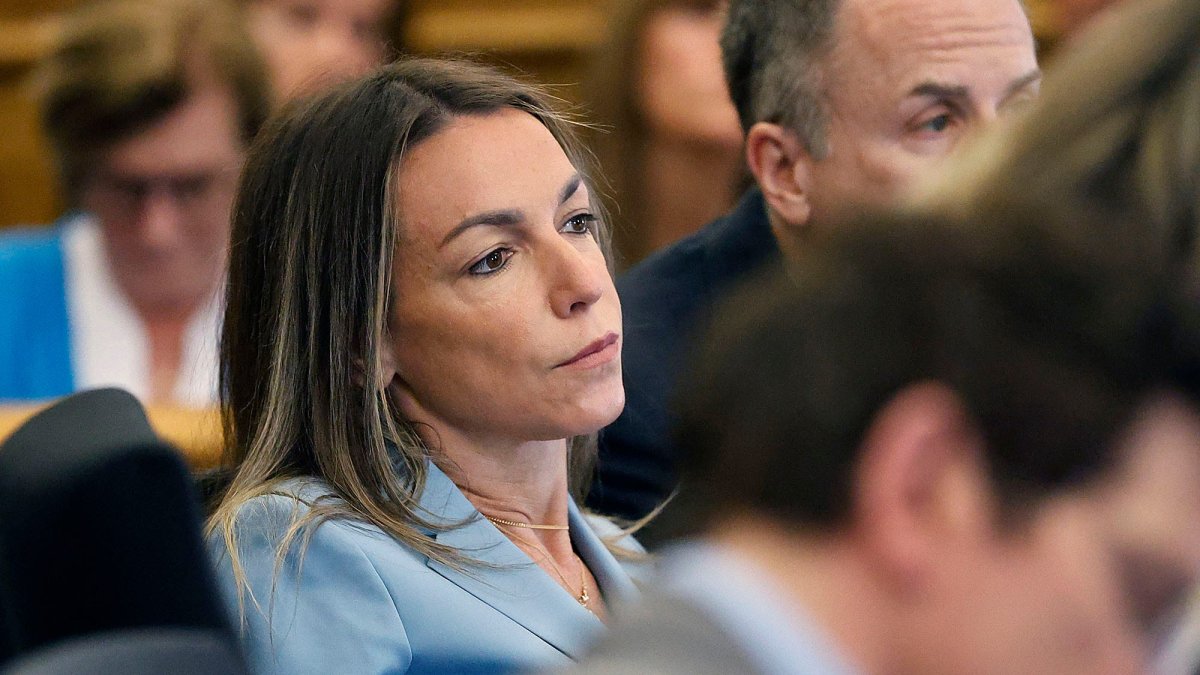Data Sovereignty And Cultural Preservation: Challenges Faced By Indigenous Scientists

Welcome to your ultimate source for breaking news, trending updates, and in-depth stories from around the world. Whether it's politics, technology, entertainment, sports, or lifestyle, we bring you real-time updates that keep you informed and ahead of the curve.
Our team works tirelessly to ensure you never miss a moment. From the latest developments in global events to the most talked-about topics on social media, our news platform is designed to deliver accurate and timely information, all in one place.
Stay in the know and join thousands of readers who trust us for reliable, up-to-date content. Explore our expertly curated articles and dive deeper into the stories that matter to you. Visit NewsOneSMADCSTDO now and be part of the conversation. Don't miss out on the headlines that shape our world!
Table of Contents
Data Sovereignty and Cultural Preservation: Challenges Faced by Indigenous Scientists
Indigenous knowledge is facing a critical juncture in the digital age. The increasing reliance on data collection and analysis presents both incredible opportunities and significant challenges for Indigenous communities worldwide. While data can empower Indigenous scientists to document and preserve their cultures, it also raises profound concerns about data sovereignty—the right of Indigenous peoples to control the collection, ownership, use, and sharing of their data. This article explores the complex issues faced by Indigenous scientists striving to balance technological advancement with the preservation of their cultural heritage.
The Power and Peril of Data:
Data collection offers invaluable tools for Indigenous communities. From mapping traditional territories and documenting biodiversity to tracking climate change impacts and preserving oral histories, data empowers Indigenous-led research initiatives. However, the potential benefits are frequently overshadowed by significant risks. Many Indigenous communities have historically suffered from the misappropriation and misuse of their knowledge and resources. This history fosters deep mistrust in external researchers and institutions.
Key Challenges Faced by Indigenous Scientists:
-
Data Colonialism: The historical context of colonialism continues to influence how data is collected and utilized. External researchers, often lacking cultural sensitivity, may collect data without proper consent or fail to adequately share the benefits of research with the communities involved. This echoes past exploitative practices, perpetuating a cycle of data colonialism.
-
Lack of Control and Ownership: Indigenous scientists often lack control over the data collected about their communities. Data may be stored on servers controlled by external institutions, limiting access and potentially leading to the misinterpretation or misuse of information. The lack of clear ownership structures further exacerbates this issue.
-
Ethical Considerations: The ethical implications of data collection are paramount. Indigenous knowledge is often intertwined with spiritual and cultural practices. Sharing certain data without community consent could be considered a violation of sacred traditions and beliefs. Informed consent processes must be culturally appropriate and deeply rooted in Indigenous principles of reciprocity and respect.
-
Technological Barriers: Access to technology and digital literacy remain significant barriers for many Indigenous communities. The digital divide limits their capacity to actively participate in data collection, analysis, and dissemination. Bridging this gap requires targeted investments in infrastructure and training programs.
-
Limited Funding and Resources: Indigenous-led research often faces a lack of adequate funding and resources compared to mainstream scientific endeavors. This disparity limits their ability to conduct high-quality research and effectively manage the data they collect.
Towards a Solution: Embracing Data Sovereignty:
Addressing these challenges requires a paradigm shift in how data is approached. Data sovereignty must be at the heart of any research involving Indigenous communities. This includes:
-
Community-led Research: Empowering Indigenous scientists to lead research projects, ensuring that research priorities align with community needs and values.
-
Free, Prior, and Informed Consent (FPIC): Implementing robust and culturally sensitive FPIC processes to guarantee that communities have control over how their data is collected and used.
-
Data Ownership and Control: Establishing clear ownership structures that grant Indigenous communities control over their data, including storage, access, and sharing.
-
Capacity Building: Investing in training and infrastructure to improve digital literacy and enable Indigenous communities to effectively manage their own data.
-
Open Access and Data Sharing: Promoting open access to data where appropriate, while respecting community protocols and prioritizing Indigenous perspectives in data interpretation.
Conclusion:
The future of Indigenous knowledge preservation hinges on addressing the complexities of data sovereignty. By embracing Indigenous-led research, respecting community rights, and investing in capacity building, we can unlock the transformative potential of data while safeguarding the rich cultural heritage of Indigenous peoples across the globe. This requires a collaborative effort between Indigenous communities, researchers, and policymakers committed to fostering ethical and equitable data practices.

Thank you for visiting our website, your trusted source for the latest updates and in-depth coverage on Data Sovereignty And Cultural Preservation: Challenges Faced By Indigenous Scientists. We're committed to keeping you informed with timely and accurate information to meet your curiosity and needs.
If you have any questions, suggestions, or feedback, we'd love to hear from you. Your insights are valuable to us and help us improve to serve you better. Feel free to reach out through our contact page.
Don't forget to bookmark our website and check back regularly for the latest headlines and trending topics. See you next time, and thank you for being part of our growing community!
Featured Posts
-
 Tom Seguras Bad Thoughts On Netflix A Hilariously Crude Comedy Special
May 14, 2025
Tom Seguras Bad Thoughts On Netflix A Hilariously Crude Comedy Special
May 14, 2025 -
 Anthony Edwards Game 4 Explosion Timberwolves On Verge Of Upsetting Warriors
May 14, 2025
Anthony Edwards Game 4 Explosion Timberwolves On Verge Of Upsetting Warriors
May 14, 2025 -
 Open Ai Stargate 200 Mw 980 000 Sq Ft Phase 1 Construction Begins
May 14, 2025
Open Ai Stargate 200 Mw 980 000 Sq Ft Phase 1 Construction Begins
May 14, 2025 -
 Brigitte Bardot Brise Le Silence Apres 11 Ans Appel A Abolir La Chasse A Courre
May 14, 2025
Brigitte Bardot Brise Le Silence Apres 11 Ans Appel A Abolir La Chasse A Courre
May 14, 2025 -
 Global Impact Nissan To Eliminate 20 000 Jobs
May 14, 2025
Global Impact Nissan To Eliminate 20 000 Jobs
May 14, 2025
Latest Posts
-
 Karen Read Case Tuesdays Hearing Adjourned Due To Unforeseen Issues
May 15, 2025
Karen Read Case Tuesdays Hearing Adjourned Due To Unforeseen Issues
May 15, 2025 -
 Impacto Da Economia Chinesa Perspectivas Para O Ipca E A Industria Brasileira
May 15, 2025
Impacto Da Economia Chinesa Perspectivas Para O Ipca E A Industria Brasileira
May 15, 2025 -
 Analyzing Pakistans Military Arsenal The Impact Of Chinese J 10 C Jets And Missiles
May 15, 2025
Analyzing Pakistans Military Arsenal The Impact Of Chinese J 10 C Jets And Missiles
May 15, 2025 -
 Oklahoma Citys Game 5 Win Over Denver A Playoff Thriller Decided By Sga
May 15, 2025
Oklahoma Citys Game 5 Win Over Denver A Playoff Thriller Decided By Sga
May 15, 2025 -
 Martin Brundle Receives Royal Recognition A British Honour
May 15, 2025
Martin Brundle Receives Royal Recognition A British Honour
May 15, 2025
